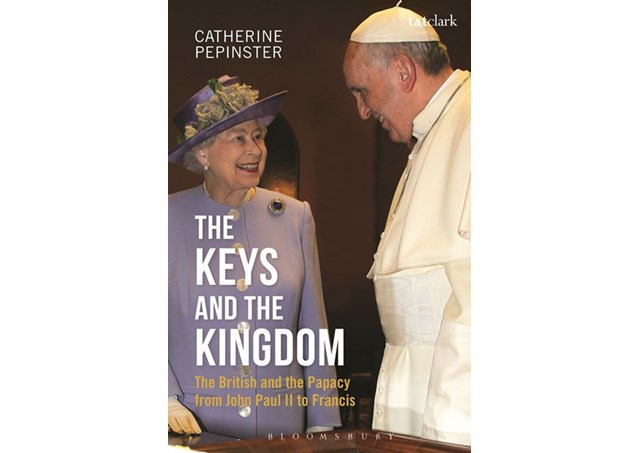
The Keys and the Kingdom: Britain's relationship with Rome

(Vatican Radio) ‘The Keys and The Kingdom’ is the title of a new book exploring the changing relationship between Britain and the Holy See since the historic visit of Pope John Paul II in 1982.
Written by Catherine Pepinster, former editor of the Catholic weekly magazine ‘The Tablet’, the book examines how much Catholics in Britain have “come in from the cold” and how they are now at the centre of public life.
Due for publication by Bloomsbury on November 16th, the volume looks at areas of common concern between the British government and the Holy See, but also at issues where tensions still exist. Based on interviews with cardinals and archbishops, politicians and ambassadors, the book offers new insights into this complex relationship – including the role of the British Foreign Office in the conclave which elected the current pontiff.
To find out more this relationship, Philippa HItchen sat down with the author and began by asking where the Idea for her book came from…
Listen:
Pepinster says the idea of the book was born out of various visits to Rome during her time as editor of 'The Tablet', as she began to realise the significance of the Holy See’s diplomatic relations.
She says she “felt it was worth explaining to people back in Britain about the relationship between their country and the Catholic Church” since most people – even Catholics – may be unaware there is an ambassador to Holy See.
War with Argentina ahead of papal visit
While the book contains a “potted history” of Catholicism in Britain since the Reformation, it focuses on the period since John Paul II’s visit to Britain which, Pepinster believes, marked a “landmark in the history of the relationship between Britain and the papacy”.
She recalls that the papal visit was put at risk by the Falklands war between Britain and Argentina, but she says the hugely successful trip did “open a lot of people’s eyes in Britain” to the Catholic Church and “transform people’s opinions of what a pope was”.
Global and domestic relations
Three and a half decades on, Pepinster says the British “seem to have a much better relationship with the Catholic Church on the world stage”, with successive governments finding common ground on poverty, climate change or human trafficking.
But “on domestic front it can be more fractious,” she continues, describing “rows” between bishops and all political parties on the crucial question of education, which has been a cornerstone of the Church’s mission since it became legal to be a Catholic again in the 19th century.
Cardinals, ambassadors and the conclave
Pepinster also looks back to days before the election of Pope Francis, recalling how “there was the need for more discussion in 2013” than there had been ahead of the election of Pope Benedict XVI. In particular, she mentions the view that “certain voting cardinals had been left out in the cold somewhat” as discussions were held in different locations around Rome.
As many of the cardinals who’d been excluded in 2005 came from around the British Commonwealth, she says, a reception was organised at the British embassy to the Holy See, co-hosted by the late Cardinal Cormac Murphy-O’Connor, during which he talked warmly of his friend Cardinal Bergoglio from Buenos Aires. Since many of those in attendance voted for Bergoglio in the conclave, she concludes, “one could say that the foreign office did play a part”.
| All the contents on this site are copyrighted ©. |


